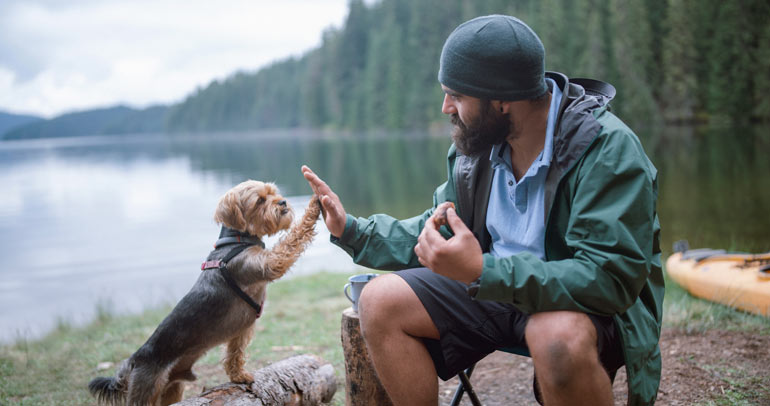
If you pay attention to marketing trends, I’m sure you’ve noticed the buzz around brand authenticity. Sounds good but what does it really mean and why should anyone care? After all, if a brand’s product or service seems reasonable, does it really matter if the brand is perceived as “authentic?”
The Merriam-Webster dictionary defines authentic as being “true to one’s own personality, spirit, or character” and “conforming to or based on fact.” Looking at brands through this lens, it becomes more obvious why brand authenticity is important. When a brand promotes itself in an inauthentic, contrived way that is disconnected from reality, the overall credibility of the brand takes a hit. If consumers feel a brand is misrepresenting itself and what it stands for, it becomes difficult for those consumers to believe any of the brand’s claims, especially about its offerings. In contrast, when a brand presents itself in a way that is honest, transparent, and consistent with how it operates, consumers develop faith in the brand.
The Connection Between Brand Authenticity and Brand Trust
Brand authenticity is important because it directly feeds into something that is even more important: brand trust and loyalty. When a brand establishes a strong degree of trust between itself and its customers, the brand benefits from a more positive perception of its organization, goods, and services. In turn, this trust means that the brand’s customer base is much more likely to do repeat business because the brand has given them good reason to stay loyal. The value of this trust is so significant that many customers are willing to pay more to work with a trusted brand rather than take the risk of working with an unvetted firm.
Patagonia: A Brand Authenticity Success Story
Patagonia is a great example of how brand authenticity has earned brand trust and brand loyalty. Founded in 1973 by outdoorsman Yvon Chouinard, Patagonia has established itself as a leading retailer of premium, outdoor clothing and equipment. From the beginning, Patagonia positioned itself as a firm making products by and for those individuals who know and love the outdoors. An emphasis is placed on providing products of the highest quality to stand up to the rigors of nature. Products are guaranteed and backed by a liberal return policy that ensures customer satisfaction.
Equally important, Patagonia has established itself as a brand that cares about environmentalism. Recognizing today’s environmental challenges such as climate change, polluted waters and expanding landfills, Patagonia has made environmental activism an integral part of its company mission. It introduced a repair operation for its clothing so that customers could maximize the life of their products rather than throw them away prematurely. Patagonia also utilizes recycled materials to manufacture its clothing line, and its cotton products are all grown organically.
But perhaps most significant, Chouinard made the decision in 2022 to turn the privately held company over to joint ownership by a trust and an environmental non-profit organization. Under this arrangement, the trust will ensure Patagonia will continue to operate its business under a consistent set of core values. In turn, profits not needed for business operations will be transferred to the non-profit organization.
As a result, Patagonia’s products and services are in alignment with its core values and operations: dedication to its customers, an outdoor lifestyle, and the environment at large. The result is a loyal customer base that considers the Patagonia brand to be both authentic and trustworthy. Patagonia doesn’t just “talk the talk,” it “walks the walk.”
Costco: A Brand Authenticity Success Story
For many of us, Costco is not just a beloved brand, but a place we visit on a regular basis to fill our pantries, equip our living rooms, and fill our gas tanks, all while finding deals that make our hearts sing. Originally formed as Price Club in 1976, this titan of warehouse clubs has grown over the years to include 800 locations across the globe. Since its inception, Costco has focused on providing high-quality products at high-value prices. Costco famously demands the best pricing from its suppliers and then proceeds to sell its products with minimal mark up, much lower than traditional retailers. While much of its revenue comes from membership fees, its business model relies primarily on selling in volume.
Costco recognizes that to drive this volume, it needs to offer deals that excite value shoppers. In addition to an ever-changing set of featured specials, Costco has drawn customers for years with two food mainstays: rotisserie chicken that it sells for $5 and a hot dog and soda that it sells for $1.50. As you can imagine, keeping prices at these levels puts enormous pressure on the bottom line, yet Costco has refused to buckle to this pressure.
As recounted in 425 Business, one executive came to the CEO at the time and said, “‘Jim, we can’t sell this hot dog for a buck fifty. We are losing our rear ends.’ And he said, ‘If you raise the effing hot dog, I will kill you. Figure it out.’ That’s all I really needed. By the way, if you raised (the price) to $1.75, it would not be that big of a deal. People would still buy (it). But it’s the mindset that when you think of Costco, you think of the $1.50 hot dog (and soda).’”
Through the years, Wall Street has questioned why Costco has kept its margins so low and compensated its employees more than many of its competitors. The argument went that higher prices and lower expenses would mean greater profits and higher stock prices. Yet, Costco has firmly remained true to its founding ideals of delighting customers by offering a low price, high-value shopping experience. The result of remaining true to itself? A devoted customer base that loves shopping for deals, solid revenue increases year over year, and a stock price that has climbed over 60% in just the past year.
Three Lessons Learned from Authentic, Trusted Brands
What Patagonia and Costco teach us is that there are several elements common to the most authentic, trusted brands. While not an exhaustive list, the following are some of the most important:
- Brand and products are aligned: Products and services are consistent with the brand’s mission, core values and key attributes
- Products perform as promised: Customers know that the products will live up to their promise by being dependable and of high quality
- Brand is customer oriented: The brand is committed to supporting its customers in the best ways possible and will make things right for them should they encounter any problems or difficulties
Of course, establishing brand trust is easier said than done. Focus, introspection and concerted effort are keys to fully understanding what the brand is today and what it aspires to be. There is also a need to determine whether customers share this brand understanding and find the brand’s offerings to be compatible with its positioning. When there are discrepancies between a brand’s ideal and actual state, additional work must be done to determine how to bridge this gap.
To learn more about fostering customer trust through authenticity, download Brand Authenticity: What It Means, Why It Matters and How to Get There.









